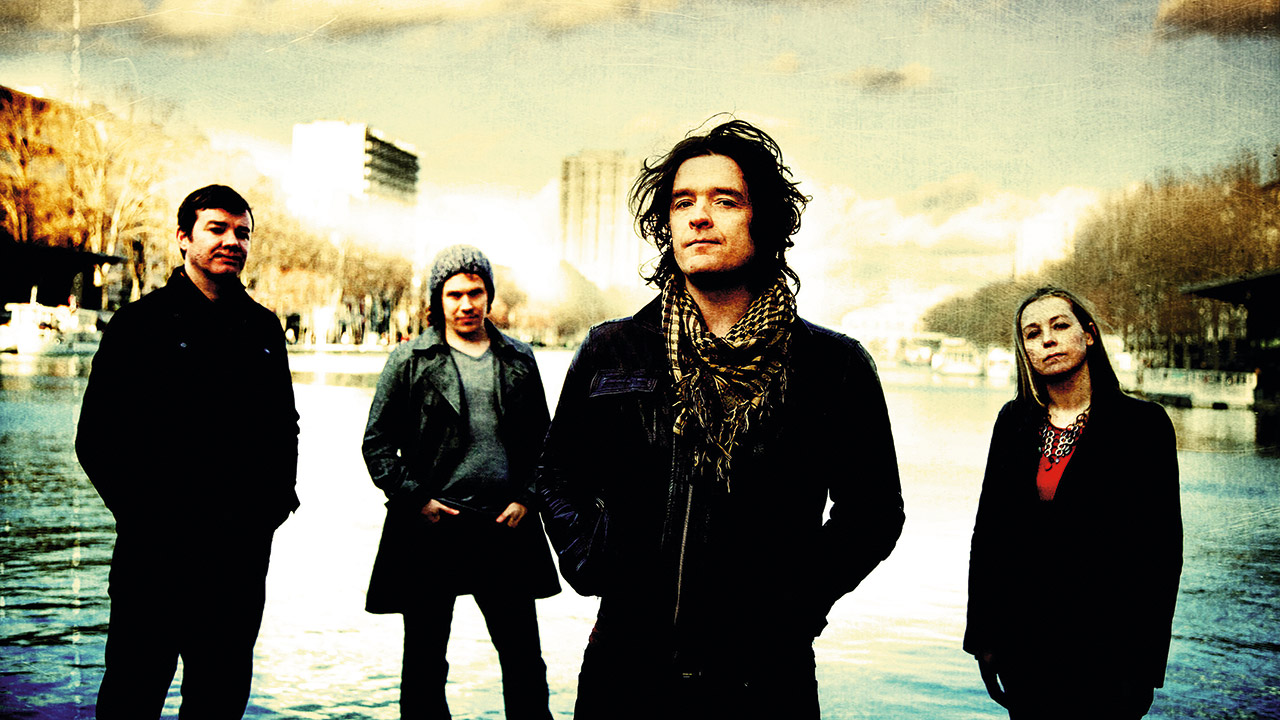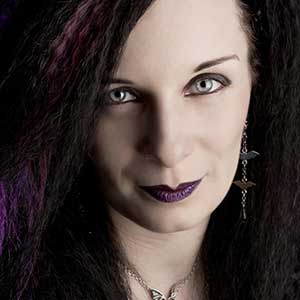"We’ve found our guy!” Vincent Cavanagh exclaims with delight to a wide-eyed Prog. “You know, Radiohead have got Nigel Godrich and we’ve got Christer-André Cederberg - he’s amazing!” Just two years after the truly magnificent We’re Here Because We’re Here, Anathema are ready to release their greatly anticipated ninth studio album Weather Systems, which has been produced by the five-times Norwegian Grammy nominee. The band’s singer and guitarist can’t wait to wax lyrical about his involvement: “Christer was a revelation, he really was - he just fitted the dynamic of the band perfectly, not just with his know-how in the studio but as a person as well. We really gelled with him,” he beams.
After witnessing the band’s tempestuous past it’s just wonderful to hear that things are running so smoothly once again. Of course, it hasn’t always been a breeze…
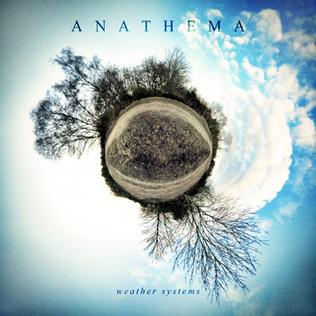
Anathema were formed 22 years ago by the Cavanagh brothers (Vincent, Danny and Jamie) and their childhood friend John Douglas in Merseyside. Since then, their career has been crammed with unexpected ups and downs, not to mention great waves of creativity; from line-up changes and family rifts to the dissolution of their former label Music For Nations, they’ve weathered each storm and have reinvented themselves several times along the way before taking the righteous path to more progressive pastures. Despite their unbridled talent, incredible songwriting and strong determination, they’ve never managed to soar to the dizzying heights of some of their peers, but instead have maintained a moderate degree of commercial success with plenty of critical acclaim. It’s something that not only seems to suit them well but also gives them the creative freedom they crave. “It’s now been four albums in four years if you include [the studio reinterpretations] Hindsight and Falling Deeper, which is pretty good going for us!” says Vincent Cavanagh. “With the last album we definitely knew we’d set a new standard for ourselves and we couldn’t fall below that - we’ve beaten it again and that’s the only way we can do things. There’s nobody that’s more aware of each record than ourselves - we’re very fierce critics and in our heart of hearts we’ll know whether something’s good or not. We’re already onto the next one as well - we’re planning it now so I guess that’s a bit of an indication of how we feel at the moment!”
Ask what it is that’s prompted this creative explosion and conversation comes back to Christer-André Cederberg, who seems to know precisely how to get the very best out of them. This young producer and engineer understands just what it’s like to be on the other side of the recording desk as he’s also a musician in his own right, having previously played with alternative metal bands such as Animal Alpha and the more progressive In The Woods…. Where Anathema’s previous album We’re Here… was very much a DIY effort, augmented by a little mixing expertise from Porcupine Tree’s talented Steven Wilson, Weather Systems was recorded with Cederberg to strict deadlines from day one. Add to that the fact the producer has been a fan of the band for the last 15 or so years and the winning formula becomes clear. He was originally introduced through their occasional touring partner, Norwegian singer-songwriter Petter Carlsen. “Christer actually plays guitar in his live band and he produces his albums,” Cavanagh explains. “We listened to Petter’s second album Clocks Don’t Count - it’s awesome - and the production is just superb. It’s crystal clear, it’s warm, it’s lush, there’s a lot of space there [and] it’s really well defined... we thought: ‘This is going to work.’”
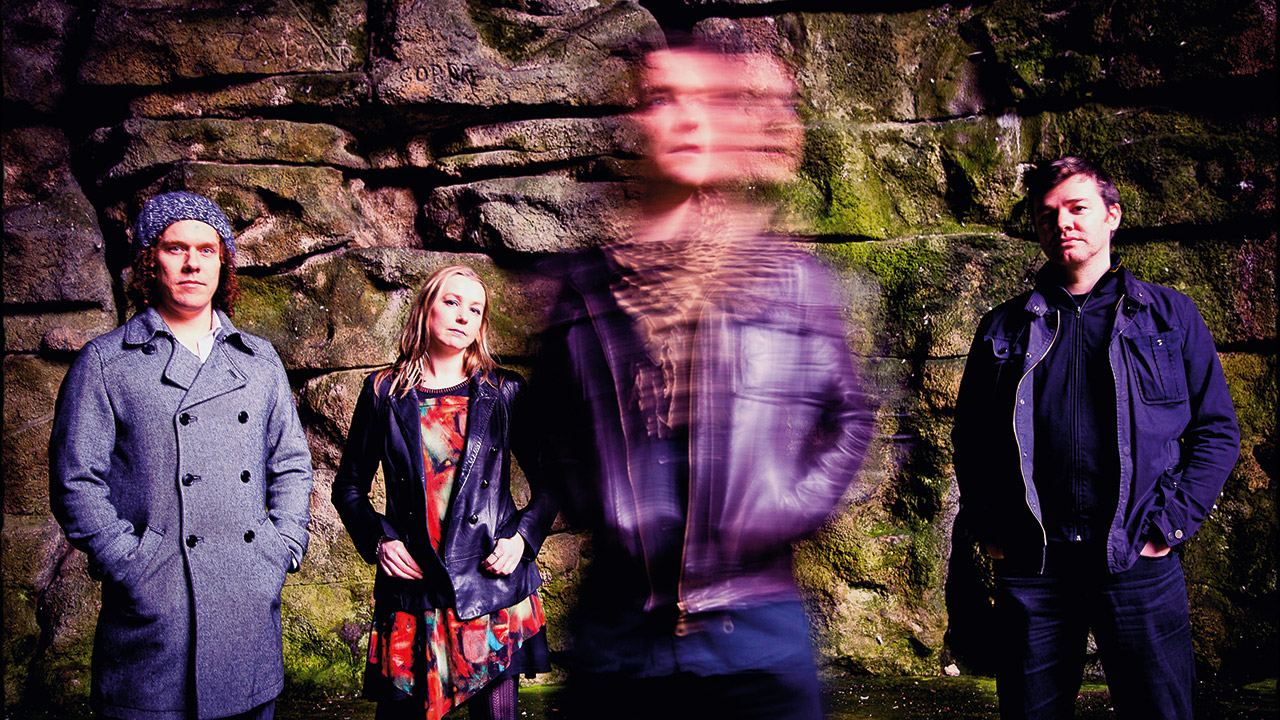
And work it most certainly has. Cederberg was quickly able to gain the band’s trust and push them beyond even their own expectations, particularly in the vocal department. “He seemed to just know what Anathema needed and that helped us,” singer Lee Douglas chips in, and it’s something she experienced first hand. Fans of her stunning voice will be particularly pleased to learn she has a much larger role on this album than on previous offerings, lending her beautiful tones to almost every song. “You could see his mind ticking,” she smiles. “Honestly, he’d make you do about... I don’t know how many takes but he’d just know the particular vocal he was looking for. You’re thinking: ‘What does he want?’ but he pushes you in a good way. A few times in the past, I’ve never felt quite satisfied, but this time I felt he’d really got the best. I think this is probably the album I’ve enjoyed doing the most ... I mean We’re Here… was a great album but I didn’t feel as part of it as I have with this one. I felt a bit more fulfilled – it got me and I felt emotional when I was recording certain songs, which hasn’t happened before.” She explains how her softer harmonies with Vincent Cavanagh on Untouchable 2 had a particularly profound effect on her. “When I went out of the studio [after recording the song] to make a cup of tea, I was welling up a bit. I think it was a combination of everything: the lyrics, the moment – we were listening back and hearing things in a different light. I’m more of a soulful, brooding singer so I suppose it was more me from the heart… it was showing my voice in a different way.”
Talking to the band about the whole recording process gives the impression that doing things differently was really important to them and it has given Weather Systems a real ‘wow’ factor, but things could have been very different. Last February, Anathema were rounding off a short tour of France when they had a number of personal belongings stolen from the backstage area. Among them were Vincent’s laptop and backup drives, which contained all the music he had written over the last three years. But instead of wallowing in the loss, he decided to start again, completely afresh. He met up with his bandmates in Liverpool and jammed out some new songs, one of which is now called Internal Landscapes and was based around a riff that Danny Cavanagh had written several years back. The band quickly realised their creative spark was so bright, it was enough to kick-start a full length album. Instead of renting a house to record in as they had done previously, their new musical journey took them to Oslo – where they laid down half the record – and then onto Wrexham a few months later to finish everything off. “I think [that was] my favourite experience,” says Cavanagh. “There was something about that place. The recording studio was in an old nuclear bunker that was built to withstand bomb blasts and it’s got six-foot thick walls! It’s a crazy place and there’s nothing really around there to do except work. In the end Christer and I were doing up to 20 hours a day some days. There was no natural light [and] no windows, so we didn’t know what time it was, but it was good. I would go back to Wrexham again, definitely, but I think you’d go mental if you spent a long time there!”
He continues: “For the first time we recorded the album in two halves. It was a good way to work [because] our records are very dense, there’s a lot going on. I mean, there were over 100 tracks on Storm Before The Calm, so that’s a lot to remember! You’ve got a board with a whole load of things [written down] to record and if you do that for every song on the whole album, it’s quite daunting!” he laughs. “That song was a couple of years old but kept getting added to, even at the end. It was a great process; I think it was the most fun we’ve had in the studio because it was going so well. We were beating the schedules that we’d set for ourselves and there was no pressure at all. It just felt easy and there was a lot of room for improvising.”
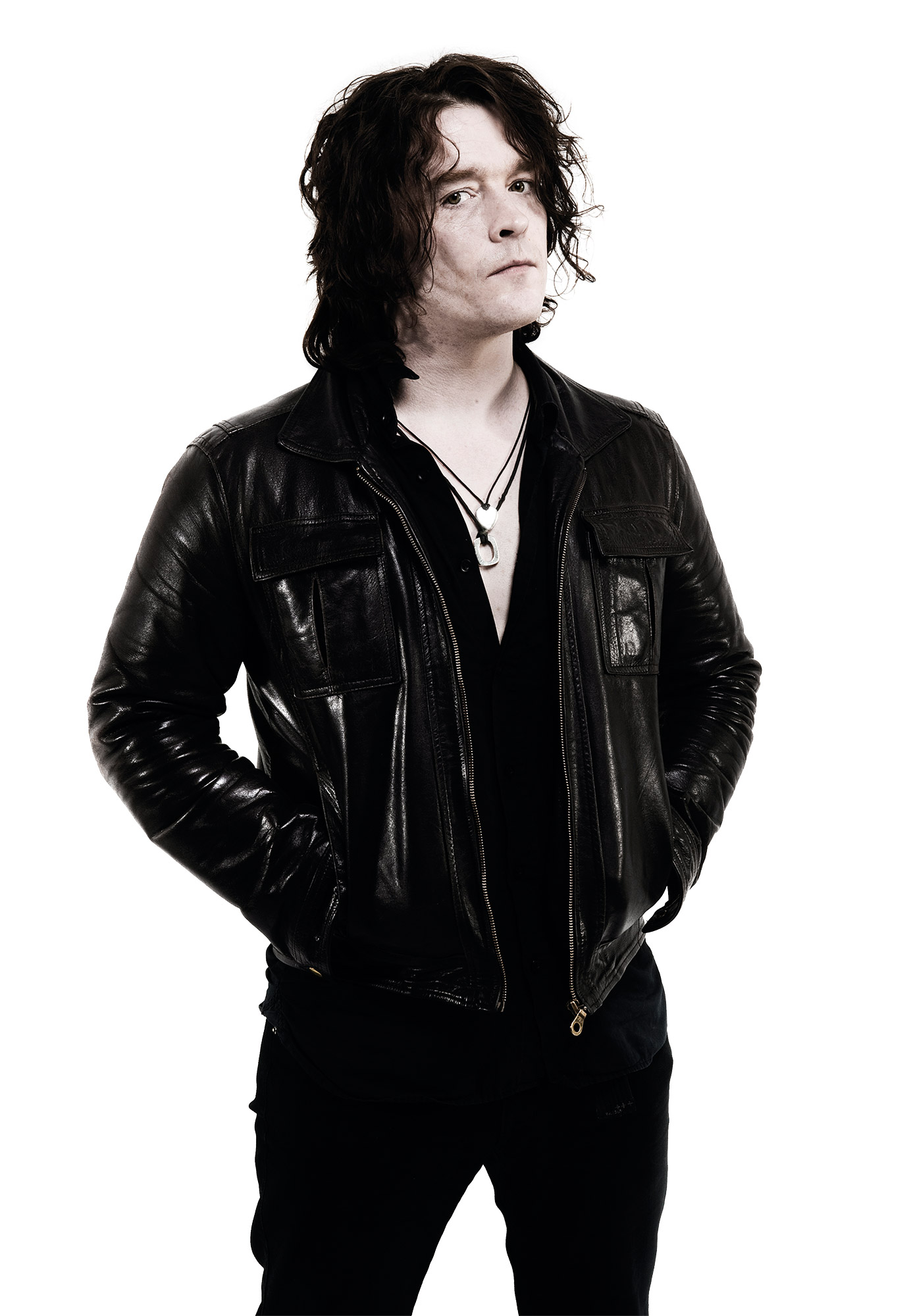
After more than 20 years of Anathema, Cavanagh still exudes the same kind of enthusiasm and excitement about his music that one might expect to find in a newcomer. Those passionate flames continue to dance around the band’s centre and there’s no denying they do occasionally ignite, although things are generally much calmer these days. “The relationships with the brothers gets a bit heated,” Lee Douglas admits. “It’s a family thing but Vinny and Danny have definitely got closer, and they’re working a lot better together. When they were younger they were a lot more fiery, and I’m glad I wasn’t in the band in those early times because I don’t think I would have coped. They’ve known me all their life because we grew up together as kids and we all get on quite well, but now and again I calm them both down. We say: ‘It’s just the Cavanaghs being the Cavanaghs!’”
Although the band’s line-up has been stable for a while now, there has been a recent change of personnel. After 11 years as an official member of the band, it was announced last year that keyboard player and tour manager Les Smith had parted company with Anathema. His sudden exit was revealed on the official website as being down to “creative and musical differences”. Vincent Cavanagh elaborates: “It’s quite sad turn of events but I guess you couldn’t wish to meet a nicer guy than Les Smith. He is one of the best blokes one could ever hope to meet; his friendship and wit are still missed by all of us. His dedication and sacrifices for us would never be forgotten but we had everything covered keyboard-wise in the studio. I guess things just came to a head.”
In an official statement, the band have confirmed that Smith’s role was always more as a live player and his contributions to recordings have become less and less over the years. In the studio Danny Cavanagh wrote and played all his own piano parts and more recently Vincent has been generating more of the band’s atmospheres and soundscapes, with John Douglas contributing synth parts and all three writing orchestral parts. Third brother and bassist Jamie Cavanagh also had a minimal role in the studio, although he’s still part of the touring line up and is joined on stage by Portuguese multi-instrumentalist Daniel Cardoso. Vincent acknowledges they’re now operating two slightly different line-ups: one live and one for studio recordings.
This personnel revision has also augmented Anathema’s international ties. “There’s only John and Lee who still live in Liverpool,” Cavanagh explains. “Danny was living in Oslo, although he’s moved to Holland now, and I’m in Paris. It’s a bit mental but we make it work and the internet is vital, also John and Lee love travelling, which helps. “When I go back to Liverpool there’s nothing there,” he continues. “I’ve moved on and life has changed. Where I live now feels more like home than anywhere I’ve lived before. There’s just something about it – there’s a feeling. I lived in New York for six months last year, which was good but everything is so fast it was like living on a moving train – it’s the kind of place that makes you want to move faster but Paris is a little more relaxed. I’ll be sad when I eventually move and I’d love to come back, but I’d definitely consider living in London for a while – I love cities; I like to be where things are happening.”
He’s also got designs on experimenting with some art-based projects out in Berlin. “My girlfriend’s an artist so I’ve been working with her on things that are more sound-based rather than connected to music,” he reveals. “There are some really good spaces to play out there, some really interesting venues. There’s a place with an old swimming pool where they have concerts and exhibitions and sound installations.” Cavanagh muses and you can tell he’s really enjoying being reinvigorated by all the new creative energy that’s pumping through his body.
There just aren’t enough words in the English language to summarise how chuffed the band are with Weather Systems. This mesmerising new album has really pushed them in a new direction and, as Danny Cavanagh says: “This is not background music for parties. The music is written to deeply move the listener, to uplift or take the listener to the coldest depths of the soul.”
Vincent smiles at the quotation: “I personally don’t mind how you play it as long as you play it! I think it’s definitely one of those albums that you can sit down and immerse yourself in; you can listen to it in one piece from start to finish. I’ve always liked albums like that, the ones that can take you on a journey.”
Anathema’s journey will continue on a European tour that begins in April, and a handful of summer festival dates. There’s also the band’s first ever show at London’s grandiose Koko. “We’ve got all of these new songs and a lot of good stuff from the past,” says Cavanagh excitedly, “There’s a famous quote from Bob Dylan where he says he doesn’t listen to his own albums because it’s like staring into a mirror where the reflection is frozen. It’s a very good point [when you] play a song live, you experience it all and that’s something I’ve been getting more and more into. I’m really looking forward to getting this album out there.”
This article originally appeared in issue 25 of Prog Magazine.
